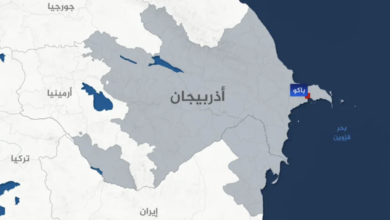
G7 summit. 600 billion dollars in infrastructure support in the face of China's Silk Road and new sanctions against Russia
The G7 summit decided to invest 600 billion dollars in global infrastructure, among several measures that he hopes will change the world for generations, US President Joe Biden said during the summit, which began Sunday in the Bavarian Alps in Germany, to discuss issues such as the war in Ukraine and fears of a global food and energy crisis.
Biden explained that the decision is a commitment by the major industrialized countries to achieve equity in global infrastructure and help build middle-income countries, stressing that the decisions that came out of the summit will set the course of the world for generations to come.
European Commission President Ursula von der Leyen said that European countries will provide some 300 billion euros over the next five years to finance infrastructure in developing countries, as part of the G7's efforts to counter China's so-called New Silk Road.
The first session of the G7 summit at the Almau Palace in southern Bavaria, Germany, discussed the food and energy crises, rising inflation in the global economy, and Russia's war on Ukraine.
Ukrainian President Volodymyr Zelensky is also participating in the summit via video link.
Sanctions on Russia
At the start of the three-day summit at Elmau Castle, the United States, Britain, Canada and Japan announced that they would ban imports of Russian gold as part of efforts to tighten sanctions on Moscow and cut off funding for its war on Ukraine, while France merely voiced its support.
Biden said the group would announce a ban on Russian gold imports as part of the latest package of sanctions, but it was unclear whether the move would be done by consensus, with European Council President Charles Michel saying the issue requires careful handling or it could backfire.
"The measures we have announced today will directly target Russia's wealthy and powerful oligarchs and strike at the heart of Putin's military machine," British Prime Minister Boris Johnson said.
The consequences would be catastrophic for the world if Russian President Vladimir Putin is allowed to go unpunished, as he will legitimize his acquisition of more, through violence, Johnson said.
Tobias Ellwood, chairman of the British House of Commons defense committee, told Al Jazeera that countries are not doing enough to get Russia to shut up about the war it has declared on Ukraine, adding that the summit is important to emphasize unity against "Russian aggression."
Elwood added that if Putin is allowed to continue the war, he will be tempted to pursue his plans elsewhere in Europe in the future, and that negotiating with Putin means more challenges for Europe in the years to come.
The president of the European Council returned to say that the G7 should help Ukraine and support the European economy and its allies.
Michel expressed the council's desire to isolate Russia and convince countries not to build alliances with it, adding that everyone must face the challenges of the economy's dependence on Russian energy.
Russian gold exports last year amounted to about $15.5 billion.
A senior U.S. administration official said the G7 summit will make a formal announcement on banning Russian gold imports on Tuesday, adding that it is "a major export and a major source of income for Russia in terms of its ability to deal with the global financial system."
Russia bombs Kiev
As the G7 summit began, Russian forces shelled the center of the Ukrainian capital Kiev for the first time in three weeks.
The Russian Defense Ministry said in a statement that it bombed the Artyom missile production plant in Kiev and explained that the damage to a nearby residential building was caused by a Ukrainian anti-aircraft missile, denying reports that it bombed a residential area.
The developments come ahead of another North Atlantic Treaty Organization (NATO) summit in the Spanish capital Madrid, set to begin on Tuesday.
Biden called Russia's bombings "barbaric," while Ukrainian Foreign Minister Dmytro Kuleba said the G7 should respond with more weapons for Kiev and tougher sanctions on Moscow.
Protests against the summit
Hundreds of protesters demonstrated in the southern German town of Garmisch-Partenkirchen, near the summit venue, demanding action on climate change.
About 1,000 people were expected to take part in the protest, but police said the number of protesters was 250.
Some 4,000 protesters gathered in Munich on Saturday, demanding that G7 leaders take action to combat global poverty, climate change and hunger.
On Sunday, climate activists held a march in central London, calling on G7 leaders to immediately cancel all developing country debt.
Imminent global crises
This year's G7 summit comes amid darker circumstances than last year, when these leaders met for the first time since the start of the COVID-19 pandemic.
Rising global energy and food prices caused by the Ukraine war have weakened economic growth, and the United Nations has warned of an "unprecedented global hunger crisis."
President Biden announced that the G7 has decided to invest $600 billion in global infrastructure.
German Chancellor Olaf Scholz said all G7 leaders are concerned about an impending global economic crisis, with slowing growth and rising inflation.
"All member states are concerned about the crisis we are facing," Schulz said in a televised statement. "Declining growth rates in some countries, escalating inflation, shortages of raw materials and disrupted supply chains, these are not simple challenges," Schulz said in a televised statement.
The G7 leaders will discuss options to counter rising energy prices and seek alternatives to Russian oil and gas imports, as well as climate change and the expansion of Chinese influence, among others.
Source: Al Jazeera + Agencies








